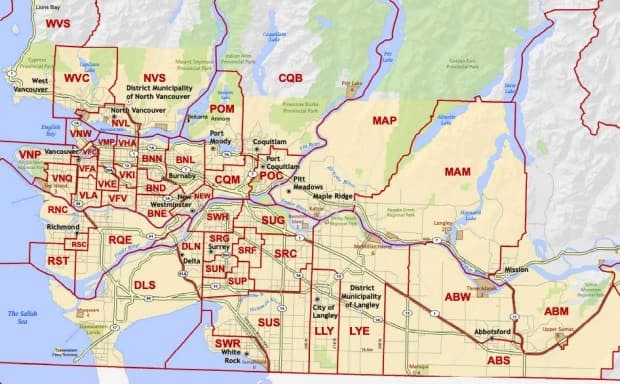New electoral boundaries bill could unfairly affect rural voters, say B.C. Liberals

Every two election cycles, B.C.'s electoral boundaries are modified by an independent body to ensure fair representation to voters based on population.
The B.C. Liberals say an amendment to the Electoral Boundaries Commission Act, introduced by the NDP, could unfairly affect voters in rural areas.
When the Liberals were in power, they added their own amendment to the act, which protected the electoral boundaries in three lesser-populated regions: Northern B.C., the Kootenays and the Central Interior.
The NDP's new bill looks to remove that.
Tom Shypitka, Liberal MLA for Kootenay East, says without that protection, electoral boundaries in rural areas could be redrawn into much larger ridings based on population size, which could limit voters' access to their MLAs.
"People need to be connected to their provincial representative. That's what it's all about. That's why we have ridings in the first place," Shypitka said to Daybreak South host Chris Walker.
"It's that lack of communication or lack of access that really has us worried."
The Electoral Boundaries Commission's main goal is to ensure representation based on population, however, it also considers several other factors like "geographical and demographic realities, the legacy of the province's history and the need to balance the community interests of the people of British Columbia," according to the act.
While Shypitka says re-drawn boundaries in cities like Vancouver and Surrey might see ridings shift by only a few blocks, in sparsely-populated rural areas, he warns it could cause boundaries to move by hundreds of kilometres.

The bill still needs to be passed and the boundaries redrawn by the independent commission, but Shypitka says his riding of Kootenay-East could potentially encompass an area stretching from Creston to Golden, which he says "is quite a jaunt and quite an issue for some people to mobilize and get to see their local MLAs."
Political Gamesmanship
The two-term MLA recognizes that the Liberals' frustration with the amendment could easily be seen as self-preservation, since the protected regions have long been Liberal strongholds.
But he points out that the same could be said about the NDP's intention to remove that protection and secure an even stronger majority in the legislature.
The Ministry of the Attorney General, however, says its amendment would provide further independence to the commission.
"The intent of these amendments is to ensure the location of political boundaries between seats is determined not by politicians, but by an independent commission," it said in a release.
"The process will not be guided by political interests, but by a legislated mandate to establish effective representation for British Columbians.
Political back and forth aside, Shypitka says it comes down to ensuring fair representation for voters in both rural and urban ridings.

 Yahoo Finance
Yahoo Finance 